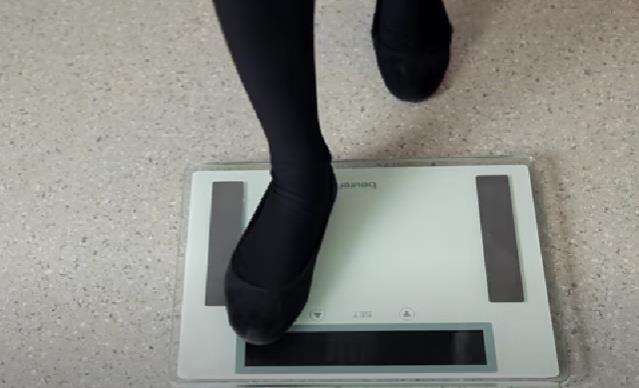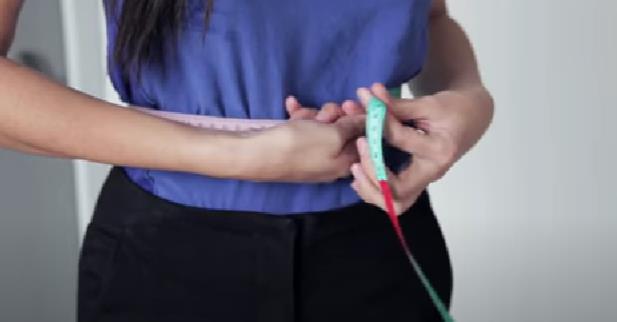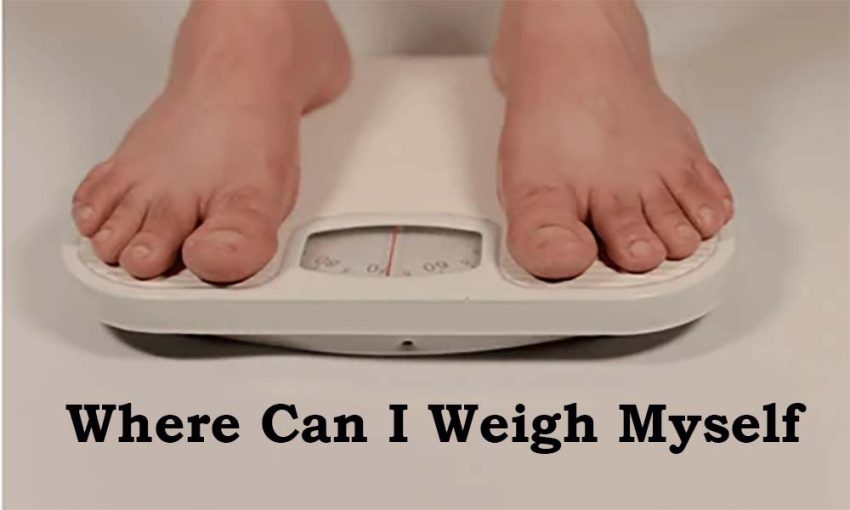If you’re trying to lose weight, keep an eye on your weight for health reasons, or want to know what your body looks like, you might wonder, “Where can I weigh myself?” There are several methods to achieve this, from home or gym weights to high-tech body composition sensors.
In this blog post, I’ll talk about some of the most popular places to weigh yourself and the pros and cons of each so that you can find the best way for your needs.
Read on to find out where you can weigh yourself and make smart choices about how to keep track of your weight, whether you want accuracy, ease of use, or both.
Where Can I Weigh Myself: Finding the Best Options

To measure your progress, weigh yourself regularly if you’re attempting to reduce weight, improve strength, or stay healthy. Some individuals can’t afford a scale, while others don’t have one at home. So where can you get your weight if you don’t have a scale? Here are some places to go and things to do.
Public restrooms
Some public bathrooms, especially airports, train stations, and malls, may have scales you can use for a small fee if you have the right coins. Even though these scales aren’t very exact or clean, they can still give you a rough idea of how much you weigh. Just bring some coins and ensure you weigh yourself at the same time of day and with the same clothes each time.
Urgent Care clinic
You can ask an urgent care center to weigh you if you need to know your weight for medical reasons, like checking your blood pressure or getting medication. Most offices have reliable and calibrated scales. You might not have to pay to use them. But this is not a good choice if you want to weigh yourself often or if no doctor is close.
Retail outlets
You could also go to a place that sells scales and try out the ones on the floor. Target, Walmart, Bed Bath & Beyond, and Sharper Image sell scales. Just ask permission to use them and don’t damage or move them. Also, remember that these scales might not be exact or reliable and that their readings might change based on the floor or the battery level.
A house of a friend
If you have a friend with a scale at home, you can ask them if you can use it sometimes. This way, you can weigh yourself safely and privately and always use the same scale. Just make sure you value your friend’s privacy and plan, don’t stay too long, and don’t make them feel bad.
A gym
If you belong to a gym or consider joining one, you can weigh yourself there. Most gyms have accurate and trustworthy scales, and they may also have other tools to measure your body fat percentage, muscle mass, or BMI.
You can also use the gym’s tools and spaces to work out and get in better shape. But you might not be able to do this if you don’t have a gym ticket or don’t like going to the gym.
As you can see, you don’t need a scale at home to figure out how much you weigh. But remember that weighing yourself isn’t the only way to track your health or progress.
You can also measure your waist, use body calipers to do a skinfold test, take shots before and after, or pay attention to how your clothes fit. The most vital thing is to find a way that works for you and doesn’t make you feel stressed or anxious.
Can I Weigh Myself Without A Weight?

Can I weigh myself without weight? Weight-watchers regularly ask this question without scales. Some say they can tell you how much you weigh without a scale, but they could be more accurate and trustworthy. Here are some of these methods:
Water displacement:
In this method, you submerge yourself in a water bathtub and measure how much water you move. But this is not very useful and is hard to do with accuracy. You need a third party to mark the water level, a big enough tub, and a way to determine the amount based on how much water moves.
Also, this method doesn’t consider how much body fat you have, which affects how dense you are and how well you float in water.
Seesaw or fulcrum:
In this method, you balance yourself on one end of a lever with known weights on the other end. But this is also very difficult and hard to understand. You need a lot of weights, a sturdy, level handle, and a way to measure the distance from the pivot.
Also, this method doesn’t consider how your body is made up, which affects how your weight is distributed and how well you can balance.
So, these are not good ways to figure out how much you weigh without a scale. Instead, you should think about other ways to keep track of your health and growth, like:
Measuring your waistline:
A waist measurement is a simple and effective way to track fat loss over time. You need a bendable measuring tape and wrap it around your waist above your hip bones. Make sure the tape fits well and is straight with the floor. Measure your height after you exhale and write it down every few weeks.
Doing a skinfold test:
Using a pair of body calipers, you can do a skinfold test, which is a more complicated way to determine how much body fat you have. You need to pinch your skin and measure its thickness in different places, like your forearms, biceps, shoulder blade, and hip bone. Then, based on your measurements, age, and gender, you can use a table or a tool to determine your body fat ratio.
Taking before and after pictures:
Taking images of yourself before and after is a good way to see how your body changes. You can take shots of yourself every week or month in front of a mirror or with the help of someone else.
Wear the same clothes or nothing, stand straight, and use the same lighting and angle. Then you can put your pictures next to each other and see if your shape or looks have changed.
These ways are more useful and helpful than figuring out how much you weigh without a scale. They can help you keep track of your health and weight loss goals without depending on a number that might not show your real progress.
How Often Should You Weigh Yourself?
Many ask how often they should weigh themselves to keep motivated and measure their progress. Different factors impact your weight daily or monthly. Thus, the answer is complicated. Hormonal changes, water retention, muscular gain, and diet are some of these reasons.
Therefore, weighing oneself too often or at different times of the day might give you incorrect results and generate extra tension. Weighing oneself once a week, ideally in the morning, is advised. You can track your weight change more accurately and consistently this way.
However, other people may choose to weigh themselves more or less often based on their objectives and preferences. If you’re attempting to lose weight and need more feedback and accountability, weigh yourself daily or every other day.
If you’re more focused on growing muscle and strength, consider weighing yourself less regularly or using alternative measures like body fat % or tape measurements to assess your progress.
The optimal frequency for weighing oneself is the one that works for you and helps you reach your objectives without triggering worry or addiction. Remember that weight is not the sole sign of your health and fitness and can change for various reasons.
Therefore, don’t allow the scale to determine your self-worth or happiness. Instead, utilize it to track patterns and alter your routines.
Final Thoughts
In conclusion, anyone who wants to weigh themselves can do so in many ways. The choice comes down to your tastes, how easy it is to get to, and how much money you have. You can use the scale at a gym or exercise center if you have a ticket or go there.
A portable scale might be good if you’d rather weigh yourself home. On the other hand, you can find public scales in places like hospitals, airports, and stores. Regardless of your choice, it’s important to remember that the number on the scale is only one part of your total health and wellness path.
Your weight is just a number; you should pay more attention to your body fat ratio, muscle mass, and general fitness level. Ultimately, what matters most is that you are healthy and happy in your body, not a certain number on the scale.
FAQ
You don’t have to weigh yourself daily, but keeping track of your weight over time can help you see changes and growth. You shouldn’t weigh yourself more than once a week so you don’t get too worried about small changes.
You should weigh yourself naked or wear light clothes to get a good idea of your weight. Heavy clothes or shoes can add more weight, changing the measurement.
To get the most accurate weight reading, you should weigh yourself in the morning before you eat or drink anything. The food and liquid in your stomach can temporarily cause you to gain weight when you eat or drink.
Read More:


3 thoughts on “Where Can I Weigh Myself: Know The Best Options”